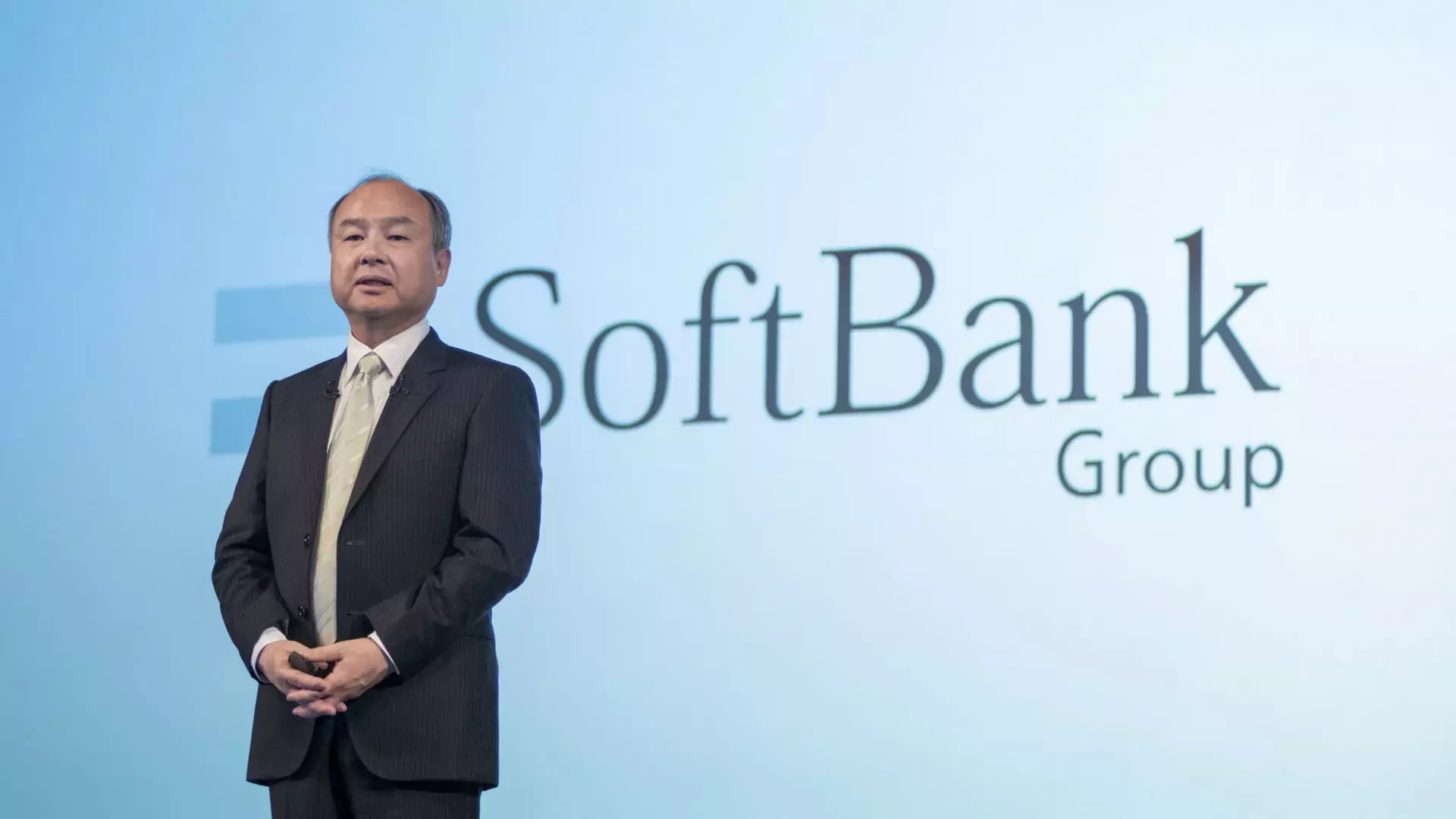SoftBank Group Corp., a prominent player in global technology investments, reported a noteworthy turnaround in its fiscal second quarter ending September 30, 2023. The company experienced a substantial gain of 608.5 billion yen (approximately $3.96 billion) within its Vision Fund investment arm, marking a significant recovery from a previous loss. This rebound follows a solid performance in the previous quarter, where SoftBank managed to return to profitability after a difficult period. The gain underscores the volatility embedded in technology investments while revealing SoftBank’s resilience in navigating these choppy waters.
In evaluating the overall performance of the Vision Fund unit, which includes administrative expenses and gains from third-party investments, a reported gain of 373.1 billion yen was recorded. This is a stark contrast to the 204.3 billion yen loss experienced in the first fiscal quarter. The remarkable recovery can largely be attributed to valuation increases in some key investments, notably in e-commerce firm Coupang, Chinese ride-hailing platform Didi Global, and tech juggernaut Bytedance. SoftBank’s strategic decision to concentrate on high-growth technology sectors resonates with its historical focus but raises questions about the sustainability of such rapid gains.
While one segment of the Vision Fund flourished, another faced challenges. The Vision Fund 2 reported a loss of 232.6 billion yen, primarily influenced by falling share prices in companies such as AutoStore and Symbotic—two firms positioned within the rapidly evolving tech landscape. The discrepancies between the funds highlight a crucial aspect of investment strategy: the unpredictability of tech valuations can lead to significant swings in performance, influenced by market conditions and company fundamentals.
Despite the underlying volatility, the Vision Fund’s successes have also been bolstered by significant capital events, such as the high-profile September 2023 IPO of Arm Holdings, a semiconductor designer in which SoftBank holds a majority ownership stake of roughly 90%. This strategic investment has undoubtedly provided a much-needed buffer against broader market uncertainties, demonstrating the potential for lucrative returns even amidst turbulent conditions.
Looking ahead, SoftBank is pivoting towards the burgeoning field of artificial intelligence (AI). With CEO Masayoshi Son proclaiming projections of AI capabilities that dwarf human intelligence within a decade, the company is aligning its investment strategy to capture the growth potential in this revolutionary sector. Son’s identification of Nvidia as “undervalued” and his decision to invest $500 million into OpenAI’s recent funding round reflect a proactive stance aimed at positioning SoftBank at the forefront of AI innovation.
This strategic alignment indicates a nuanced understanding of tech trends and an eagerness to leverage emerging technologies for financial growth. However, it also raises essential questions regarding the inherent risks associated with such high-stakes investments. As seen with past investments, the volatility associated with tech companies can undermine shareholder confidence if valuations do not materialize as expected.
Overall group performance also showed positive trends, with net sales up 6% to 1.77 trillion yen, partly driven by substantial investment gains from stake holdings in companies like Alibaba and T-Mobile. The stock performance of SoftBank has soared, reflecting market optimism and recovery from the lows witnessed in previous quarters. However, the company faces challenges beyond mere financial metrics. Activist investor Elliott Management’s influence, calling for a significant share buyback plan, adds another layer of pressure to SoftBank’s executive decisions, highlighting the intense scrutiny that accompanies large-scale tech conglomerates in fluctuating markets.
As SoftBank moves forward, it will need to balance the aggressive pursuit of high-growth opportunities in AI with prudent risk management and sustainable investment practices. While the current financial performance is promising, the reality of market volatility continues to loom large, requiring careful navigation to ensure long-term success in the competitive tech arena. As the company embarks on this new chapter in AI, investors and analysts alike will be watching closely to see if SoftBank can effectively transform its vision into actionable growth.

Leave a Reply